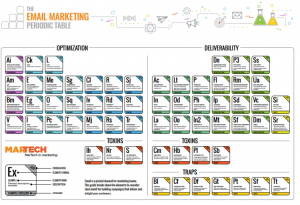
Greetings, readers. We’re mixing up the usual rotation of roundup news to bring you an innovation “Tour of Texas”—stories on venture capital activity, startup re-branding, e-commerce, and a study of entrepreneurship—from around the state’s major metro areas.
Austin:
—The Zebra has set its sights on the murky confines of the insurance industry. Founder Adam Lyons says the startup helps to simplify insurance and demystify the process by which we access it. The website enables consumers to enter basic information—a car’s make, model, and year, as well as a zip code—and receive in 90 seconds the best insurance matches selected from among 3,000 products. The company recently raised $ 17 million from investors such as New York’s Daher Capital, Silverton Partners in Austin, and Dallas Mavericks owner Mark Cuban, and is working on a mobile app for the service.
—Making a big-decision purchase like a car or home can feel like a futile task given all the details to consider, especially with so many options online. Vast aims to use its data analytics-powered search tools to help people purchase cars, homes, and travel options. The company has historically done so by offering its services as a white-label search tool, but recently announced this week it has received a $ 14 million investment from Capital One Growth Ventures to further build out a branded version of its own tools.
Dallas:
—StoneEagle Services has raised $ 76 million from San Francisco-based venture firm FTV Capital to expand its virtual “credit cards” business. The cards are used for business-to-business payments in the healthcare and automotive industries, among others. The idea is to digitize traditional processes, such as insurance company payments to healthcare providers or reimbursements for automobile warranty claims. The process, the company says, is also safer than paper checks. StoneEagle’s “v-cards” are one-time-use only and for a fixed amount.
—Jerseys of professional athletes, the player’s number featured prominently on the back, are a staple in sports memorabilia. But FanPrint wants to make those shirts more personal for those who are wearing them. The startup uses social media to market sports-themed apparel that is largely marketed toward women. Among the brands who have signed on to FanPrint’s vision include the National Football League Players Association; the Collegiate Licensing Company; and World Wrestling Entertainment, or WWE. “We have the ability to reach corners of the Internet that they can’t get to,” says founder TK Stohlman.
Houston:
—Entrepreneurship is considered the fuel that drives economic growth. But what are the best ways to help entrepreneurs be more successful—and what are best practices for startup accelerator programs? Rice University professor Yael Hochberg is investigating which parts of the educational programming offered by the nation’s myriad accelerators and incubators actually have a material effect on successful startups. To help her do so, she has received a $ 1.5 million grant from the Ewing Marion Kauffman Foundation.
—Executives at Houston’s Medical Adhesive Revolution have been focusing on developing wound-closure technology since the company first came to prominence following its win at the 2014 Rice Business Plan Competition. Now, company executives are focusing on softer, yet important issues, such as marketing and brand. The company, which is German-born and calls Houston its U.S. home, is now called Adhesys Medical. “This has been a journey that has been prompted by a variety of factors: the old name was difficult to pronounce; it was not very memorable,” says company president Alexander Schueller.
San Antonio:
—11 early stage businesses just graduated from the Techstars Cloud accelerator program. The Techstars Cloud program was founded in 2012, and was Techstars’ first foray into creating an accelerator focused on a specific industry vertical. These sorts of industry-focused programs now make up about one-third of all of Boulder, CO-based Techstars’ programs, ranging from a mobility-focused accelerator in Detroit to a healthcare-targeted one in Los Angeles. The cloud focus makes sense for the Alamo City. Cloud computing company Rackspace is based in San Antonio.
Xconomy
(67)
Report Post





